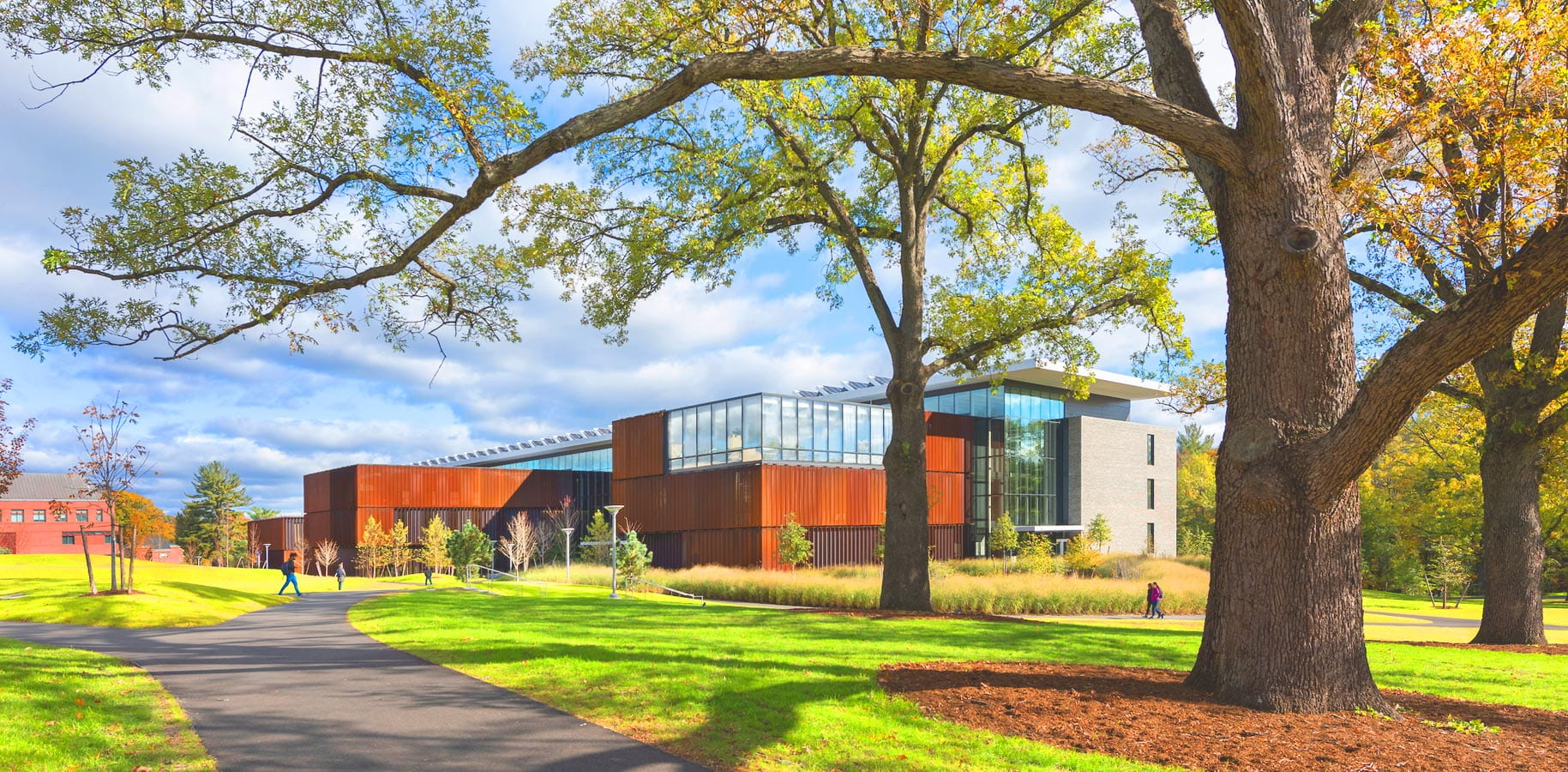With final exams coming up, students are looking for all the extra help they can get. This help can be found at the Moss Quantitative Center, where undergraduate tutors and staff can help with STEM subjects. The Q Center has an interesting history, as Dr. Innes explained: “It actually was created, in its earliest form, following a student protest. In 1994 there was a Drew House Symposium where black students at Amherst were protesting the lack of support that they were getting particularly in the sciences and pre-med tracks. After a faculty committee, they decided that they needed to form us and have more support for students in math and science classes. So that’s how we wound up with the Quantitative Center.” I talked to Dr. Jennifer Innes, the director of the Moss Quantitative Center, about her role in helping students. Dr. Innes majored in Chemistry at Kalamazoo College, got a PhD in Biophysical Chemistry from Yale, and has been at Amherst since 2003. She also worked with Onawumi Moss, for whom the Moss Quantitative Center is named.
I first asked what exactly Dr. Innes does as the director of the Q Center. In short, she does “Lots of things. There is administrative work… but I also work directly with students taking Chemistry classes up through 221, and students taking first-year physics. So I try to keep up with what faculty are doing in those classes each semester.
“I also organize the Summer Science program, and co-organize the Quantitative and Social Science program for incoming first-year students. There’s a summer bridge program for first generation and low-income students so for incoming students and it’s normally a three-week program where we bring the students to campus and then they take classes. So, of course we try to tailor it to students’ declared interests. The Summer Science Program targets students who are interested in biology, chemistry, neuro, or pre-med because they’re going to be taking a common set of courses in the fall, and that program has been going on for over 30 years. More recently, about 10 years ago, they added a Humanities track for students who would like to get on campus and they take humanities and social science classes.
“But we found we had a group of students who had interests that didn’t match either one. They weren’t life sciences but they weren’t really interested in humanities…they were interested in stats or comp sci or economics and so the new Quantitative and Social Science track, which we have done for two years now, gives us an opportunity to invite them to come take some math and some econ and and get introduced to campus as well. So we’re broadening the number of students who we can invite.”
My next question was for which subjects or specific classes she and the Q Center staff provide help. “We work pretty closely with the individual courses. So generally if you’re not in the course, you might not hear about what help sessions are available. There is a web page, but it can be pretty hard to keep everything up to date in terms of what’s been scheduled because we do work with quite a number of classes now. Mostly I see students in Chem 151, 155, 161, 221, and Phys 116, 117 (or 123, 124). I see students who are working on pre-lab and post-lab write ups, doing homework for the classes and especially preparing for quizzes and exams.
But the Moss Q Center staff also work with Bio 191, and all the required courses in the Math major, and of course we work with the departments to make sure that there are undergraduate tutors providing drop-in help in Math, Stats, Econ, Chem, Bio 181, COSC. But we have managed to keep undergraduate drop tutors holding dropping hours. We do a lot of appointments and we work with the same courses. So a lot of the stuff shifted over to the online platform pretty well.”
Students can schedule individual appointments with Dr. Innes and other Q Center staff ,,here or find drop-in hours and undergraduate tutors for certain subjects ,,here.
